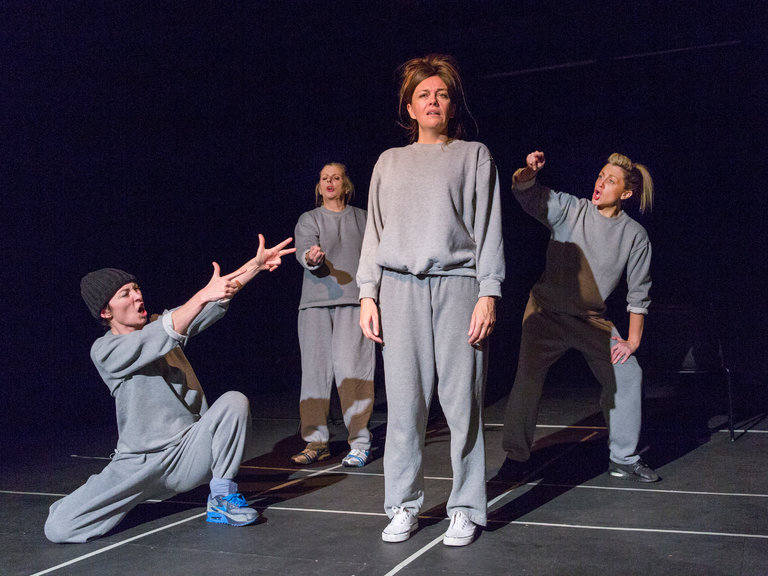Changing Tunes: responding to a changing landscape
On 12th July, Clinks launched their annual State of the Sector report for 2017. Every year, Clinks surveys voluntary sector organisations working in the criminal justice system to collect information about how healthy the sector is, the role it is playing, and the wellbeing of service users. This year the report found that organisations have seen an increase in the number of people they are supporting, with more complex and immediate needs, resulting in organisations developing more flexible and creative working and recruiting more volunteers. They have dealt with large reductions in funds, and have struggled to get full cost recovery on services, with some closing services. Through all of this the sector remains innovative and creative, with many designing new services to meet emerging need and responding to a changing landscape.
In this blog post, Lizzie Bond from Clinks and National Criminal Justice Arts Alliance member organisation Changing Tunes, reflects on and responds to this year’s State of the Sector report.
Changing Tunes delivers music and mentoring to enable prisoners and ex-prisoners to live lives of meaning and purpose, free from crime. We do this through music-making sessions, which involve teaching, learning, playing, recording and performing all kinds of music. Any prisoner can take part by applying through prison application and they can also continue to do so ‘through the gate’ in the community. These sessions are delivered in a safe space and facilitated by a Musician in Residence, who has been recruited for their musical skills, values and mentoring abilities. We deliver our sessions in 16 prisons and their surrounding communities across the South West, Midlands, South Coast and Wales. Our work in the Midlands is run by our franchise, Changing Tunes Midlands.
Clinks’ State of the Sector report has been both a confirmation and a wake-up call. In relation to the former, it confirms the legitimacy of our aims as an organisation to keep diversifying our project and income-base to better meet beneficiary need and become more sustainable. It is also a wake-up call, showing just how difficult it is not just to survive, but to thrive in the current climate. With all this challenges where funding is concerned, it will always be the beneficiaries that lose out.
As an arts organisation working in prisons, our case for support for funding has been a challenge due the apparent subjective nature of our work. We are a relatively small criminal justice specific organisation, dependent entirely on freely given voluntary income (70% grants and the remainder donations and some prison funding). We are in good company, as the report shows organisations with a similar profile are also dependent on grant funding and struggling to acquire local government money. We also recognise the drop in trust funding, low reserves, and struggle to increase donations as a criminal justice specific organisation. There is a need to find new sources of funding, an awareness that they are not easy to acquire without significant project change and a pressure to continue maintaining what we already do – unfortunately, for our profile, this report confirms how difficult it is for organisations of our size and focus.
We also struggle with full cost recovery. Our core costs equate to nearly half of our budget, and as a small organisation we have been able to raise unrestricted income because we have had a vision for growth to reach economies of scale. However, the ceiling on grant funding has meant that although we could support more prison and post-release sessions, we haven’t been able to acquire the money to do so. Reading this report cemented a feeling of being stuck in a space within the sector that we can’t break out of unless we drastically change the delivery of our project to meet specific outcomes laid out by funders.
As an arts organisation, we know our work contributes to creating a positive identity at the core of who someone is, enabling them to find the joy and hope that comes with healthy connection, increased confidence and a sense that there is value in a life outside crime. We consistently hear that our sessions have transformed people’s lives. Although we know it is hard to attribute what is down to the music and mentoring, we do know that for some individuals, participation in the arts (and sports) can be life changing. We have seen time and time again how arts interventions fill the gap in services, providing something complimentary to needs-focused programmes and objective or hard outcomes.
With this in mind, I wholeheartedly support Clinks’ vision to encourage good practice for commissioning. For an arts organisation that struggles to find sources of earned income but has a significant impact on the lives of our beneficiaries, we will always remain somewhat reliant on grants and need to make sure funders understand how the arts can transform lives.
Another way to address these challenges is to help organisations think through income opportunities but more importantly, how these will affect the project delivery. We haven’t ventured into statutory income, and with the current climate our organisation is currently too small, but if there is a way to meet government targets through trust in our outcomes without having to drastically change our approach, then I would love to hear it!
Finally, as an arts organisation, we would love to be involved in more partnerships with other organisations outside the sector. This, I am sure, holds value for all organisations represented in the report, who recognise the importance of community cohesion, social capital and pathways for ex-prisoners in the community. However, it is a huge challenge to broker and create partnerships, because although they are valuable, they require a great deal of time and resource. Perhaps funders could see this as a valuable area to invest in, as we are always hearing from funders that charities should work together more, but are never funded for this purpose in mind.






